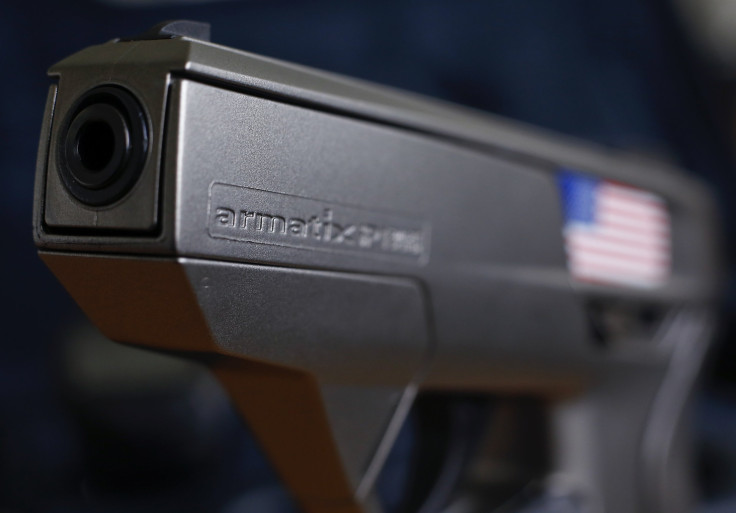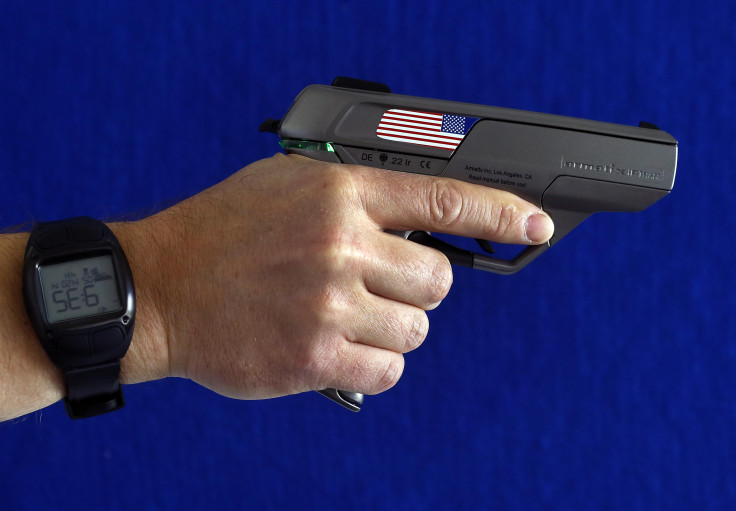What Are Smart Guns?

In a James Bond-like update in technology, verified users would be the only ones able to fire smart guns, which could quench many concerns related to gun use and safety, but Second Amendment supporters disagree.
While technology on the devices could make it impossible to use them if they cannot authenticate the user’s identity, there are still questions regarding them. Companies argue that smart guns could reduce the number of crimes caused by stolen guns, as well as the number of suicides and accidents from children playing with guns. There is also a belief that officers could be assured that gun grabs from suspects are less effective as well.
Manufacturers also argue that they can make guns allow multiple identities to be tied to them through radio frequency or fingerprints, and can be safer through added measures such as phone apps that make authentication possible with a near--field communication chip, or PIN codes that make them accessible only to certain users.
Defenders of the Second Amendment, however, are vocally against advanced technology. The National Rifle Association led a boycott against Smith & Wesson when they tried to promote smart gun development. The National Shooting Sports Foundation has also opposed measures that would mandate sole use of smart guns arguing that adequate protections already exist that offer enough protection, including gun locks and safes.
Publicly, the NRA has more recently said they oppose “any law prohibiting Americans from acquiring or possessing firearms that don’t possess ‘smart’ gun technology.” This was in response to a now-repealed law in New Jersey that restricted the sale of handguns to just smart guns, as soon as they became available and met certain qualifications.

An employee at the German company Armatix holds a weapon that's been implanted with a radio chip that prevents the gun from firing if the shooter is not wearing the required watch. Photo: Reuters/Michael Dalder
These Second Amendment supporters also cite concerns related to burglaries, that a gun would not unlock quickly enough to protect civilians or police. In the past, these smart weapons have also been hacked, creating more concerns.
Still, companies have begun to display their products to investors and beta test them with police officers.
LodeStar, a four-year-old company, unveiled a smart 9mmm handgun for stakeholders and investors in Boise, Idaho, which would retail at $895. SmartGunz , which says police officers are beta testing their products, has one available for police at a purchase price of $1,795, while civilians can purchase for $2,195.
Both companies claim to be ready for the product to be commercially available in 2022.
LodeStar’s product is secured by a fingerprint reader and a near-field communication chip with a PIN pad in case of weather effects or any other adverse conditions. The fingerprint unlocks the gun in microseconds while the app would work as a backup.
Meanwhile, SmartGunz’s weapon uses radio frequency identification. The company was started in 2020 by Senator Tom Holland, (D-Kan.) Another company based in Colorado, Biofire, is developing a smart gun with a fingerprint reader, though there are many more.
With the new guns potentially coming to the market, questions remain about how they will affect current gun laws and regulations.




















